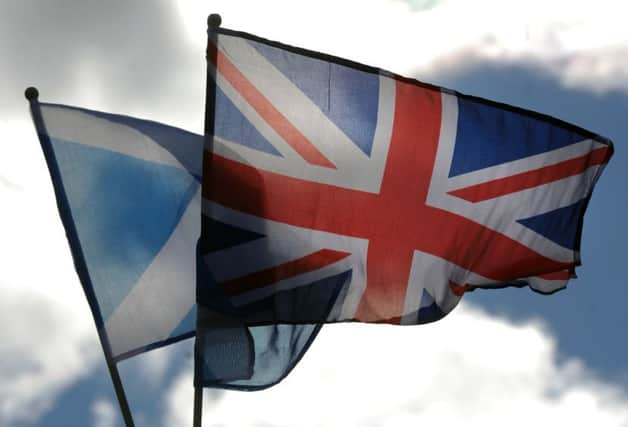Andrew Whitaker: Scots’ fear of Tories could sway referendum


Certainly at first glance the 34 per cent who answered Yes to the question “Should Scotland be an independent country?” for an ICM poll in this week’s Scotland on Sunday makes gloomy reading for the nationalists.
However, findings by the same polling outfit suggest the possibility of a slightly different narrative if external factors come into play – or to quote former Tory prime minister Harold Macmillan: “Events, dear boy, events.”
Advertisement
Hide AdAdvertisement
Hide AdThe ICM survey this week showed Scots were more likely to vote Yes if they feared the UK would exit the EU and when the “don’t knows” were excluded, there were 46 per cent who suggested that the prospect of Scotland being dragged out of the EU could yet steer them towards Yes.
Even more striking is the suggestion that the outcome of the referendum could hinge on whether Scots fear a surge in Tory support and the prospect of another David Cameron led-government at Westminster in 2015 – probably one of the few factors that could yet seal a victory for the Yes campaign.
An ICM survey earlier this year showed that 41 per cent of people in Scotland would vote to leave the UK if they thought the Tories would defeat Labour in 2015 – polling just one point behind the No camp.
As 18 September gets closer, Alex Salmond and the Yes campaign will do even more to promote aggressively the mantra of “Vote Yes to end the prospect of Tory rule” in a direct pitch to Labour voters.
Of course, the Yes camp has not given up on promoting the supposed benefits of independence in their own right, as contained in the SNP’s government’s white paper – the nationalist blueprint for leaving the UK.
However, there is a very real sense in which the Yes side appears to be prepared to make its key pitch on the basis of “Vote for independence to avoid the prospect of Tory rule at Westminster and more years of cuts”.
Astute figures at the top of the SNP appear to be all too well aware that there is no existing majority for independence, but they fully understand these external factors – namely if Scots fear a Tory victory at the 2015 election – could yet deliver a Yes vote by the back door.
All of which, to change tack slightly, suggests that Ed Miliband could be one of the most pivotal figures in the referendum in terms of how he fares in the coming months and, when referendum day finally arrives, how likely Scottish voters think it is he will lead Labour to victory in 2015.